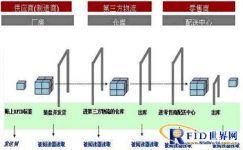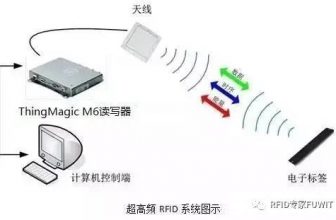
RFID clothing industry overall solution
[ad_1]
1. System overview
The competition in the apparel industry is becoming more and more fierce. To be invincible in the market competition, the apparel industry must continuously improve production efficiency and shorten the capital turnover time. According to market research and analysis, through informatization of the entire clothing industry, production efficiency can be greatly improved and capital turnover time can be shortened. At present, most of the clothing industry is all manual work, without any informationization, which leads to poor feedback of the entire information. When problems occur, they cannot be discovered and dealt with in time, which leads to the situation of idle work in many links. At the same time, the situation of product sales cannot be grasped in time, resulting in the out-of-stock of the best-selling products and the under-selling of the products, which also reduces the profit.
RFID technology can informatize all aspects of clothing production, product processing, quality inspection, warehousing, logistics transportation, distribution, and product sales, providing users with real-time dynamic tracking and query throughout the entire process; achieving information processing, system operation status, and business operation quality Monitoring and management, while providing real, effective, and timely management and decision support information for managers at all levels, providing support for the rapid development of the business, will be able to solve all problems, from now on comprehensively reduce costs, increase profits and competitiveness.
2. System structure and function
Clothing has the requirements of anti-counterfeiting, anti-theft, logistics distribution management and specialty store or store management. During the production process of clothing, first useRFIDThe card issuing machine writes some important attributes of a single piece of clothing into the RFID tag and attaches the tag to the corresponding clothing. The uniqueness of the tag can be used as a clothing anti-counterfeit identification. The distribution process can be done through the electronic tag attached to the packaging box. At the same time, the RFID reader installed at the door can alarm and prevent theft of abnormal clothing brought out by customers.
2.1 Clothing anti-counterfeiting function
In the clothing production process, use the UHF card issuing machine to write some important attributes of a single piece of clothing such as: name, grade, article number, model, fabric, lining, washing method, implementation standard, product number, inspector number, etc. Enter the corresponding electronic tag and attach the electronic tag to the garment. The attachment method of the electronic tag can be: implanted in the clothing, made into a nameplate or tag, or adopts a recyclable anti-theft hard tag, etc. Each piece of clothing is given a unique electronic tag identification that is difficult to forge, which can effectively avoid counterfeiting and well solve the problem of clothing anti-counterfeiting.
2.2 Warehouse management
Due to the feature of RFID technology that can identify multiple tags at the same time under non-contact and non-visual conditions, that is, dozens of full boxes of clothing with electronic tags can be accurately read all of their logistics data at one time through an RFID reader , Which greatly improves logistics efficiency. If RFID technology is used to realize the warehousing management, the warehousing management of the logistics distribution center, and the warehousing management of the retail store, the entire supply chain of “shop replenishment demand—distribution center—manufacturer” can be realized. Optimal management of the process, the use of RFID technology in warehouse management can realize the visual management of all management units, which can greatly shorten the packaging, handling, inventory, and statistics time, thereby reducing cargo damage, accelerating capital turnover, and greatly improving the efficiency of warehouse management.
2.2.1 Warehouse management
When garments are produced from the factory and go through the storage procedures, the staff put the goods on a forklift and send them to the back-end warehouse. If possible, a reader and antenna can be installed on each forklift to identify the RFID tag data. When the forklift brings the goods to the warehouse, it is read by the reader at the door of the warehouse and the tag information is sent to the warehouse The management system records the detailed information of the goods received.
In the warehouse, goods are placed on containers according to their type, such as style or brand. Bar codes are affixed to the shelves for easy identification. In daily life, employees use RFID devices to read cargo labels and shelf barcodes, and associate the goods with the stored shelves. The handsets are embedded with barcode scanners, and the containers use barcodes instead of RFID tags to avoid obtaining them at the same time. The ID numbers of several containers.
2.2.2 Outbound management
Before being treated as RFID technology, the clothing delivery process was handled manually. That is to say, when these garments arrive at the distribution center from the manufacturer, the staff must manually check them one by one, and when the garments are sent to the clothing store, they must be packaged one by one and recorded manually, which results in many errors.
After using the RFID application, the manufacturer’s label is affixed to the clothing item to be sent and verified before delivery, and then an advance shipment notice is issued to the retailer. After the packaged clothing arrives at the distribution center, it will be placed on the conveyor belt. During the transmission process, these labeled packaged clothing will pass through the channel RFIDReaderAfter reading, the data after reading is sent to the system, and the software will confirm the ID information. If it is incorrect or missing, the system will issue a warning to remind employees to check the clothing goods in the box. After the clothing is repackaged, it is shipped to the clothing store. Before being loaded on the truck, the staff will read the ID number on the tag in the RFID channel according to the packing list, and finally send the advance shipping notice to the clothing store.
Through this process, 15,000 pieces of clothing items can be verified per hour in only one RFID channel. The automation of the verification process can reduce the time a single product spends in the supply chain by 5 to 7 days.
2.3 Warehouse inventory to avoid out of stock and broken codes
For manufacturers and clothing stores, both RFID readers can be used for warehouse inventory. Customers can automatically analyze the tags read by the readers to know the actual clothing of a certain style, color, and model. Quantity, so as to ensure the balance of inventory, and timely replenishment, to avoid the phenomenon of out of stock or broken codes of a certain clothing in the clothing store, and to ensure the normal needs of customers.
Three, logistics management
The benefits of RFID technology in clothing logistics are reflected in the efficiency of logistics management, logistics costs, and delivery control.
The application of RFID technology realizes the standardization of clothing logistics operations, shortens operating procedures and operating time, reduces labor costs, thereby reducing operating costs, increasing the throughput of logistics links, increasing the transparency of supply chain management, and improving logistics management efficiency.
At the same time, the use of RFID can minimize the delivery error rate. Delivery errors mainly refer to the shortage of original boxes and packing box errors. Both of these problems can be minimized by using RFID technology.

Four, store anti-theft
The RFID reader has a relay output function inside, that is, when the reader reads a tag or a tag with a specific format, the reader closes the relay, which triggers the closure of the external relay and starts the alarm or alarm indicator. For RFID Label anti-theft has the following situations:
4.1 Labels in clothing stores need to be recycled
In this case, the reader installed at the door of the clothing only needs to read the tag to trigger an external alarm.
4.2 The label of the clothing store is not recycled
In this case, the clothing store can use the RFID reader to rewrite the label on the clothing that the customer is about to buy, and define a byte of data. When the byte is 0, it means that it has not purchased, and when it is rewritten to 1, it means that it has been purchased. , When the reader at the door reads an unwritten tag, it triggers an external alarm, and when it reads a rewritten tag, it does not trigger an external alarm.
Five, VIP customer management
Clothing stores or clothing factories can use RFIB tags to apply for a membership card for VIP customers, and use RFID readers to automatically call up VIP customer related information, including the business direction of the VIP customer, the previous visits of the VIP customer, and the appointment and negotiation items of the VIP customer And so on, based on this information, you can fully understand VIP customer information and conduct targeted conversations.
[ad_2]





